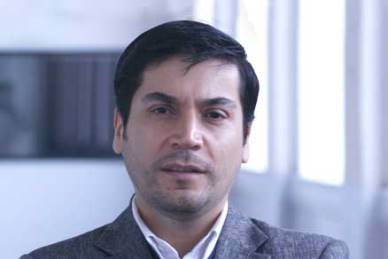- Professor Saúl Contreras, academic at the Department of Education, is developing the Fondecyt Project “Early Teacher Training for Science Education” that seeks to analyze the academic performance of 1,200 Teaching Training Program students across the country to contribute with an explanatory model on how future teachers internalize and implement their curricular teaching knowledge.
- According to professor Contreras, this instrument will put a strain on the Inicia Test,” because the latter evaluates future teachers at the end of their training. “Our idea is to evaluate students during all their training process,” to obtain a comprehensive and timely knowledge about it.
- Professor Contreras presented the first results of this study at international conferences in Tarragona and Barcelona, Spain.
The quality of education is today a core topic in the public policies debate and it has become one of the key demands of different social sectors.
But this quality is affected by different variables, like the good or poor education received by those who will be responsible for teaching new generations, that is to say, Early Teaching Training, (FDI, in Spanish). This is why Dr. Saúl Contreras, PhD in Education of Universidad de Santiago de Chile is working on the project “Early Teaching Training for Science Education”, funded by Fondecyt, that seeks to create a model and an instrument to evaluate the training process of pre-service teachers. As a result, this would allow training institutions to review the decision making process regarding training matters.
The study considers a national sample of 1,200 trainee teachers in math and experimental science specializations. The research team led by Dr. Contreras will do the corresponding follow up for four years.
“We seek to create a model and an instrument to explain how students acquire teaching competences and skills. In the context of the study, we are going to provide important data to each participating institution,” Dr. Contreras says. He adds that this information will be very useful to correct the course of early teacher training.
“It will put a strain on the INICIA Test”
Professor Contreras claims that among the side effects of this study, “it will put a strain on the Inicia Test,” the voluntary test to evaluate graduate teachers in different contents. “It does not make any sense to expect a quality education by thinking that we can achieve it just through measuring instruments like Simce, PSU or the Inicia Test.”
Professor Contreras also stresses that the Inicia Test evaluates pre-service teachers at the end of their training programs. “We propose to have a systematic assessment instrument during the whole training process and not only at the end of it. Because we should ask ourselves if the results of the Inicia Test are not good and the students already graduated, what happen to them? Should we give them remedial courses? It is too late to do it”, he answers.
For all the above, the instrument studied by this researcher at Universidad de Santiago de Chile becomes essential, because, according to Professor Contreras, it is not about preparing students like pre-university schools do: it is “creating and applying an instrument to evaluate future teachers at certain time points during their training. And this is a decision of the institutions that internally choose to help their students.”
Regarding the assessment tests, Dr. Contreras says that he totally agrees with their application, “otherwise it would be impossible to know how we are doing,” but these instruments should be developed “together with the subjects and starting with them, because they also need to be relevant,” he explains.
Professor Contreras is so convinced of the effectiveness of his proposal that he does not doubt that, after applying the assessment instrument for four years, it may be applied at a national level, in the context of a public policy. He thinks that it “can also be implemented in the technical- professional formation.”
Although the first stage of collection of data was finished only a few weeks ago- with the collaboration of teacher training programs of universities from Arica to Punta Arenas- professor Contreras presented the first results of this project at the International Congress of University Teaching and Innovation (CIDIU, in Spanish), held at Tarragona, Spain and then, at the Edulearn VI International Conference on Education and New Learning Technologies, in Barcelona, Spain.
These first steps allow seeing significant changes in future teachers’ training that, in the end, will affect the quality of education.
Translated by Marcela Contreras



